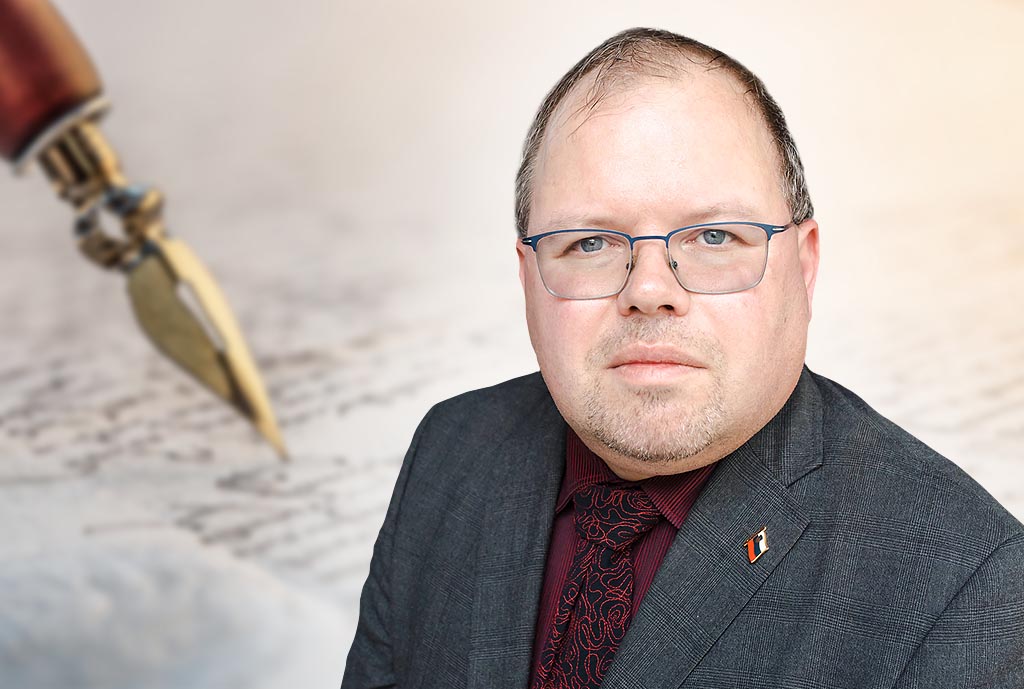By: Gašper Blažič
For Slovenia, the year 2025 will be significant in many ways, as it will mark the 80th anniversary of the end of World War II. For the veterans’ organisation and like-minded individuals and groups, this will once again be a time for manifestations and grand celebrations, while for the other part of the Slovenians, it will be a reminder of the genocidal massacre of tens of thousands of Slovenian men and women. And, as always, the latter group will once again be in the shadow of the former, which will proclaim that we have been “free” for 80 years and will continue to hear the eternal accusations of national betrayal.
This will, of course, also be a clear sign that national reconciliation, in terms of politics, is an unattainable project. The media-highlighted handshake between Milan Kučan and Ljubljana Archbishop Alojzij Šuštar in the summer of 1990 at Kočevski Rog was a Potemkin village. Later, we comforted ourselves with the assumption that reconciliation would come when the last surviving Slovenian participant of World War II passed away. But this did not happen. Quite the opposite: the new generation of enthusiastic revolutionaries, born well after the independence, have emerged – for example, the neo-Stalinist speaker Lenart Žavbi is just the tip of the iceberg – proclaiming communist revolutionaries as saints, while the victims of the revolution, even more fervently than their fathers, are being sent to the party’s hell.
Can the democratically minded part of the Slovenians be satisfied with the achievements of the last 35 years? During this time, a great deal of literature, various testimonies, and even historical analyses of the recent period have been published, revealing the true nature of the communist revolution in Slovenia, especially its terrible consequences and its impact on wartime events. It did not help. The mentioned literature perhaps reached a tenth of the Slovenian population at best, convincing those who were already convinced, while the vast majority of the public rejected any attempt at a different interpretation of history and remained a captive of indoctrination. This includes the new generations of Slovenians, meaning that the anti-revolutionary side still faces a tragic failure after 80 years.
National reconciliation – or rather, conciliation – is desperately needed. However, it will not be achieved if we wait for political actions. The current ruling political elite’s interest is to maintain the asymmetry and inherited party racism. Simply because it serves their interests. There will always be a large enough portion of voters who will decide based on whether the political option comes from the ranks of the “liberators” or from the ranks of the “collaborators”. Reasoned deliberation has no place here, because things are black and white. Reason does not decide. Emotions do, based on false mythomania.
Regardless of everything, people need healing. We need forgiveness. This can only happen if they ask for forgiveness. A model for us can be Pope Saint John Paul II, who, in the Jubilee Year of 2000, with the special document “Memory and Reconciliation”, asked for forgiveness for all the historical mistakes of the Catholic Church and indicated what “cleansing of memory” means. The well-known Indian Catholic priest James Manjackal, who visited Slovenia several times, describes in one of his books how he dealt with a woman who was deeply affected by some wartime events and could not forgive the nation or state that attacked her homeland and caused her trauma. As a result, she could not heal. In the name of this aggressor state, Father James knelt before her and asked for forgiveness (even though he had nothing to do with it!). She forgave him and experienced inner healing and liberation.
This summer, I also drafted a text asking for forgiveness on behalf of all military and paramilitary groups that operated in Slovenia during and after World War II – whether they were occupiers, revolutionaries, or counter-revolutionaries – and at the same time proclaimed forgiveness to all members and especially the leaders of these groups, including the nations, states, and ideological systems. At first glance, this text may appear very indulgent, which may disturb some people. However, it concerns ordinary people who have the right to inner peace. “The proud successors of the League of Communists of Slovenia” continue to extend the so-called collective resentment and unforgiveness of the nation towards those who were on the counter-revolutionary side, thus, on the other hand, “feeding” unforgiveness on the other side, the resentment towards the partisans, Tito, and the communist regime. Many people mistakenly think that forgiveness is for the weak and that having pride means holding onto resentment. But this, of course, is a great lie of Satan. Because of this, they do not forgive and suffer greatly within themselves.
So, will we find an alternative path to reconciliation? For this reason, I already kneel in spirit on behalf of all aggressors and ask for forgiveness. And at the same time, I forgive in the name of the victims.

